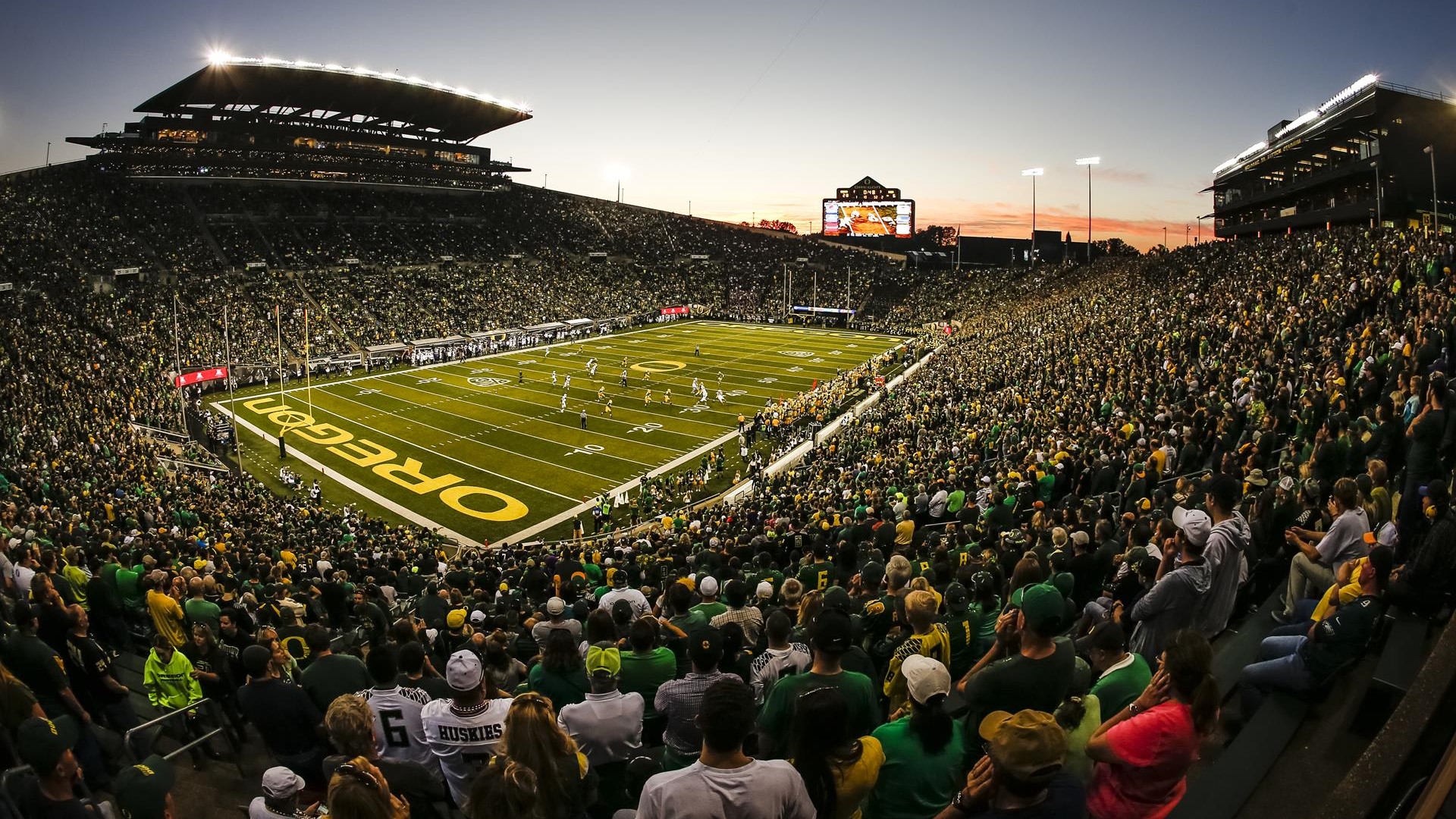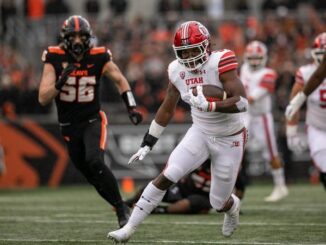
The first game of the college football season is set for August 29. That’s just 50 days away. Still, the date seems as secure as Jell-O in a slinky riding down an escalator, or a paper airplane in a convertible on the autobahn.
If the season does somehow start on schedule, it almost surely is going to be without fans. Stadiums will be empty, parking lots clear of tailgaters sequestered to backyards and driveways. And this will go on as long as is deemed necessary, which at this point, could mean just about anything. The arbitrarily instilled rules around what contact is allowed at sports gatherings leaves us without a clue as to what it would take to cause a second shutdown.
The NFL just released a rule declaring post-game jersey swaps illegal, forcing players who just spent a few hours hitting and tackling each other to keep six feet apart. Before foursomes were fully reinstated in Seattle’s King County, groups of four were only allowed to play after 3 pm, because the virus likes its afternoon siestas. There are rules that make sense, rules that half make sense, and then rules that are just there to prove they’re trying. But the larger scale a sports operation is, a la NCAA football, the harder it is to make rules that make sense and allow all the benefits to be realized. It’s played out for all to see in the MLB: If it don’t make dollars, it don’t make sense. So number one, it has to make money; number two, it has to be fairly safe; and number three, it has to appeal to the market base. Thank god this decision ultimately lies in the hands of the colleges themselves and not the governing body of the NCAA.
Ultimately, I believe what is best for the game is what’s best for everyone. Trimming seasons to only play in conference games is one idea. This option is like the meatloaf of dinners. It’s no filet mignon, but then again, it’s no Oscar Meyer frank. The schools benefit by getting some much needed cash flow, the players benefit by playing, and the fans benefit by watching football. All of this, of course, comes at a discounted profit because fewer games means less everything else.
Another option being floated around is waiting until spring. The benefits here are pretty obvious but also heavily reliant on the ability to contain the virus (as is everything else). The hope is the season would go off as normal except in a warmer climate. Living in the PNW, that doesn’t sound too bad. Watching a college football game up here you have to act like you’re climbing Everest; the weather can change in an instant. Seventy degrees and sunny can quickly become 59 with wind and rain. Just ask those fans who went to see UW and Cal play last year and ended up sitting through a three-hour lightning delay. Who would this benefit the most? My dad. He wouldn’t have to wear six layers to every game, and I wouldn’t have to listen to him gloat about how warm he is when it pays off.
My dad isn’t the only one who would like Spring football. It makes sense for almost everyone. The one caveat is how close that pushes the season to the NFL draft. Assuming the college football season could start by March, that would only give players a month before the NFL draft. With a season that typically runs around three months long, this is no bueno. If top players are already willing to sit out of bowl games, what is stopping them from skipping an entire season when the NFL draft is one month away? And assuming all goes well in the upcoming NFL season, owners would have no reason to move the draft back, and on top of that the NCAA would look poorly for failing to play in the fall when the NFL succeeded.
In the end, we have to hope the collegiate leaders make their decisions in the best interest of all students. What that is, I don’t know. There are innumerable variables that make a right answer more elusive than Barry Sanders. Colleges feel pressure to get students back on campus, they feel pressure to keep revenue up and avoid the cuts schools like Stanford had to make. They feel pressure to keep people’s children safe. Sickness seems more likely to occur the sooner they play. To those who argue against the spring on grounds that the best players won’t play, I say we’ll have the pleasure of meeting new ones. In this scenario, looking incapable is far less costly than looking incompetent.



